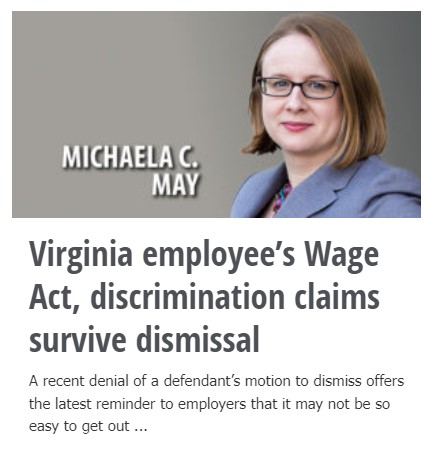
B&B Partner Michaela May spoke to Massachusetts Lawyers Weekly on the new-found prevalence of Massachusetts claims in remote work environments, particularly among commissioned employees.
In an article published on May 27, May spoke about the circumstances that often lead employees whose work straddles many states to pursuing their rights under Massachusetts law. Massachusetts law claims can be attractive to employees, including because the Commonwealth’s Wage Act imposes mandatory treble damages for late payment of wages, including commissions. Likewise, the Massachusetts anti-discrimination law, G.L. c. 151B, is a “robust” statute that can provide for punitive damages and can hold companies strictly liable for discrimination and harassment perpetrated by their supervisory employees.
Many cases in which workers may avail themselves of Massachusetts laws relate specifically to allegations that an employer is “playing games” with an employee’s commissions, May told Lawyers Weekly. Employees receiving commissions often perform work across state lines.
“Those cases simply lend themselves to choice-of-law disputes,” May told the newspaper.
The impetus for the Lawyers Weekly article was an April 19, 2023, decision by Judge Indira Talawani in which the U.S. District Court for the District of Massachusetts declined to dismiss Massachusetts claims brought by a B&B employee who lives in Virginia but who worked for an employer headquartered in Massachusetts. The plaintiff in that case is a commissioned salesperson represented by May and B&B Partner Todd Bennett.
B&B represents a wide range of workers, and Attorney May’s practice in particular focuses on unpaid and late-paid wages for employees across sectors.
